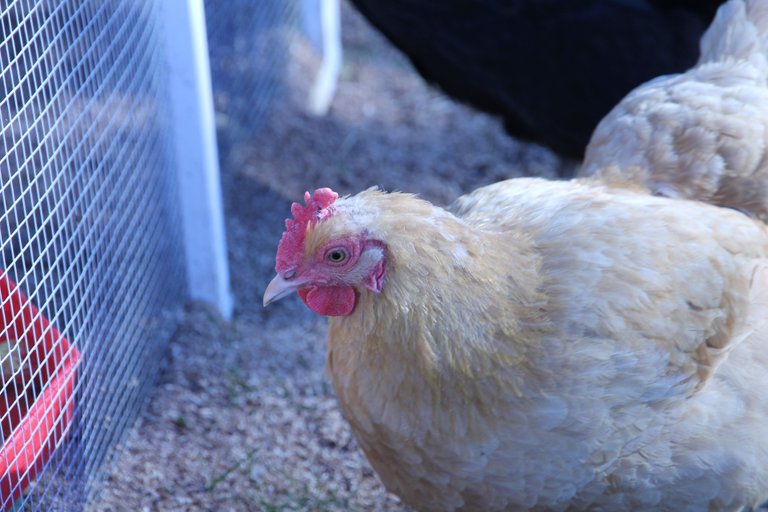Keeping backyard chickens is both productive and entertaining. I love watching my tiny dinosaurs run around, pecking, scratching and chasing each other. But at only $4 a dozen for farm fresh eggs, is it really economical?
The researcher that I am, I hit the books...and youtube...and documentaries, etc. to find out. My husband's already skeptical about chickens, so I wanted to make sure we weren't losing money on them - fuzzy feelings aside.
So I collected 13 ways to cut our feed bill costs, and thought I'd share with ya'll!
If you have other animals, when you move them to fresh pasture, run your chickens after them. Not only will they be able to eat the pig, cow, horse, llama manure, etc. but they'll eat the bugs that are attracted to the manure. Double bonus - they'll spread the manure around for you. If you've ever had to pick fields, you know how awesome this is!
Vermiculture - if you're homesteading, or doing any type of gardening, I highly recommend starting your own worm farm. It's fairly inexpensive to do and the worm casings you get are better than Miracle Grow. In fact, people have made a living selling their worms and the worm casings! They take manure from local horse and cattle farms, introduce their worms and simply wait.
If you do worm farm, eventually your worms will reproduce to the point of crowding. When they reach that point, simply remove about 10-15% and feed them to your chickens! I love when an output becomes and input...one of the essentials of permaculture.
Meal worms - just like red wigglers, you can also grow meal worms easily for an awesome source of protein for your flock.
Carcasses - if you butcher your own animals, or have access to someone who does, boil the left over carcasses and either keep the bone broth for yourself, or give everything to your chickens. Boiling helps free up all the loose bits of tendon and flesh and softens the bones.
Compost - if you're composting your kitchen and garden scraps, keep your compost bin open and available to your chickens.
Grow things specifically for your chickens - while you don't need to label certain tomato plants only for your chickens, I also grow a little extra so I can toss overripe or bug-eaten produce to my girls. Fruit, nuts, veggies, herbs, etc.
If you use cover crops, run your chickens over the cover crop in a chicken tractor to get a second use out of that clover.
When you forage weeds, nuts, herbs, blackberries, etc. for yourself, pick some extras for your chickens.
Sprout seeds and legumes. You can usually get bags of wheat and barley for cheap. Soak them, changing the water daily, for up to 4 days. Soaking seeds and legumes helps to crack open their tough hull and make the nutrients inside more available.
Soak or ferment your feed. If you don't want to wait, simply soaking your crumbles will help capture a lot of that dust and let your girls eat it, as well as increases the size and weight which will make them feel fuller longer - and keep them from overeating. If you ferment your feed, however, you'll unlock new B vitamins and Vitamin K2, giving your girls an added nutritional boost. To ferment your feed, simply add feed and enough water to cover and let sit for a few days. Continually add more water and more feed as you run out.
Measure your feed! This one was a big one for me. I usually give my girls free access to food 24/7. Even when they free range, they can get back into their coop and eat store-bought feed. What I didn't realize, however, was that each chicken should only get 1/3-1/4 lb of feed per day. Measuring exactly how much you're feeding will help save you a TON.
Identify your perfect flock size. How many eggs do you want? How many do you need? If you're only making eggs for your family, how many eggs can you really go through? If you're making eggs to sell, that's a different story. Essentially - don't have more chickens than you need.
Cull your older girls. Chickens can live up to 10 years, but their egg production slows down dramatically after 3 or 4 years (depending on the breed). If you have any girls over 4 years, go ahead and cull them and make room for a younger lady with better production.
Did I miss anything? Did you learn anything from this? I certainly did just be researching!

Hillsborough Homesteading Blog
Hillsborough Homesteading Facebook


I have 18 layers, dual purpose birds. Mine to go to Freezer Camp at 18 months. I tried keeping them 2 years but it just doesn't make financial sense. I also cull for the very best birds each year. Most years the birds lay enough and I sell enough to cover the cost of raising them. So we eat eggs for free!
I'd like to mention if you are trying to get a good number of eggs, the birds of today do best on layer feed. Keep the supplementation to under 10% by weight of their daily ration, and make sure they are eating the daily ration. Weighing it out is a good way to find out if they are eating well.
Another crucial thing is to make sure they have plenty of access to cool clean water. In the summer, if the water is too hot, they won't drink enough. If they don't drink, they can't digest their food. Not enough nutrition and your egg production tanks. Ever notice how the laying decreases in really hot weather?
Glad to see this post as I hadn't seen any from you lately....
Happy to see you are back ;)